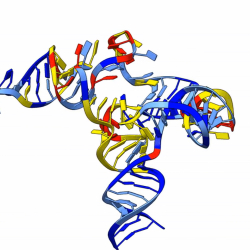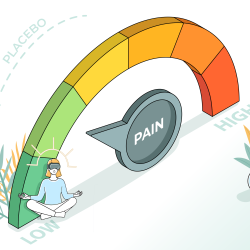Alums Fighting Human Diseases
Decoding Disease, Targeting Threats
Though modern science has eradicated countless threats to human health, many other diseases and degenerative conditions continue to take a devastating toll. How can we eliminate these threats to health and well-being?
Researchers in the University of Maryland’s College of Computer, Mathematical, and Natural Sciences (CMNS) fight relentlessly against diseases and conditions that claim countless lives and undermine ability, function and perception. These scientists are committed to finding answers by mapping complex neurological circuitry to better understand how the brain works and what happens when something goes wrong, tapping into the power of disease-fighting T cells to stop cancer in its tracks, and unraveling complex mechanisms to better understand and treat neurological impairments caused by aging and disease.
Grand challenges demand bold ideas and real-world solutions. In CMNS, we lead Fearlessly Forward.
Challenged to Find a Cure

“We want to find a cure for cancer,” explained Khrimian, who spent years as a scientist and business development expert in biopharma. “We know we can generate different therapeutics that can help a lot of patients.”
Deka’s research focuses on cytokines, which are small proteins secreted by the immune system that can be combined to create novel therapeutics for cancer as well as inflammatory diseases.
“We are the first in the world to generate targeted dual-cytokine therapeutics with an aim to stimulate a patient’s immune system to find and kill tumors,” Khrimian noted.
In January 2023, Deka received notification from the FDA that it may proceed with launching a phase one dose escalation clinical trial of its novel cancer molecule. Now, with plans underway to expand clinical trials and collaborate with biopharma partners, Khrimian believes Deka is on the right path.
“The early data from patients looks very encouraging and we are very excited,” Khrimian said. “Our mission is challenging, but we remained focused on helping the patients. It’s amazing work to be on this journey.”
Stopping Breast Cancer Metastasis

Now, as deputy chief of the Women’s Malignancies Branch in the Center for Cancer Research, Steeg investigates why breast cancer cells migrate to the brain and grow and metastasize there—and how to stop them.
Last year, Steeg found that Temozolomide, a medication primarily used for brain tumors, prevents metastasis in breast cancer.
“We were very surprised,” she said. “This prevention of brain metastasis was unheard of in breast cancer.”
With the phase one clinical trial for Temozolomide now complete, the treatment will go into a phase two trial to look at whether the drug provides metastatic breast cancer patients with a year of freedom from brain metastasis, and if their overall survival rate increases compared with no treatment.
“Brain metastases are so devastating because they negatively affect your neurocognition,” she said. “With this research, we hope to preserve their cognition and quality of life for longer.”
Rare Diseases, Next-Generation Therapies

“Patients live with persistent cough and shortness of breath,” Shukla explained. “Your lungs can become fibrotic, that’s when really bad things happen. You need a lung transplant or you might die.”
In early trials, aTyr recently provided the first clinical proof-of-concept for efzofitimod, a novel treatment based on a new class of protein therapeutics using enzymes called tRNA synthetases.
“These enzymes—their primary job is to help create proteins but astonishingly, they break apart into fragments and migrate to different tissues to play a very non-enzymatic role, basically controlling immune environments,” Shukla explained. “One of these fragments seemed to act as an immune policeman for the lungs, so we developed that into efzofitimod.”
Shukla hopes this research could one day help patients battling a variety of rare, progressive lung diseases, ultimately improving outcomes and changing lives.
“You’re taking something developed essentially in the petri dish to now being able to put it into patients—and hopefully you start to see some of those patients improve,” Shukla said. “It’s really exciting.”
From Academic Research to Drug Development

Currently, as chief business officer for BioInvent International, Ryckebusch builds partnerships and research collaborations to support the company’s efforts to develop new antibody drugs for treating cancer.
“The cost of developing a pharmaceutical product is now in the billions of dollars, so biotechs almost never take them to market on their own, you have to partner with a big pharma at some point,” she explained. “There’s a whole strategy around how you partner, when you partner and with whom.”
Ryckebusch takes pride in her role as part of BioInvent’s drug development effort, but she’s quick to note that she’s just one small part of something much bigger.
“In the pharma industry, it takes 15 to 20 years to develop a drug and a lot of creative and dedicated people contribute along the way,” she said. “I really hope one of BioInvent’s products makes it to the market and is able to improve treatment outcomes for cancer patients. I would be proud to have contributed.”
Written by Leslie Miller and Chelsea Torres
This article was published in the Fall 2023 issue of Odyssey magazine. To read other stories from that issue, please visit go.umd.edu/odyssey.
Also from this issue:







